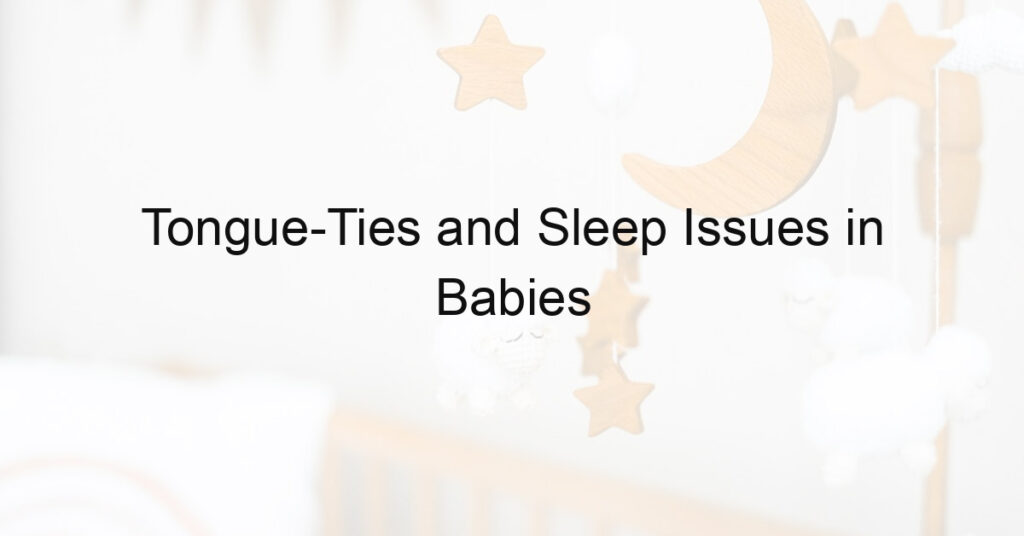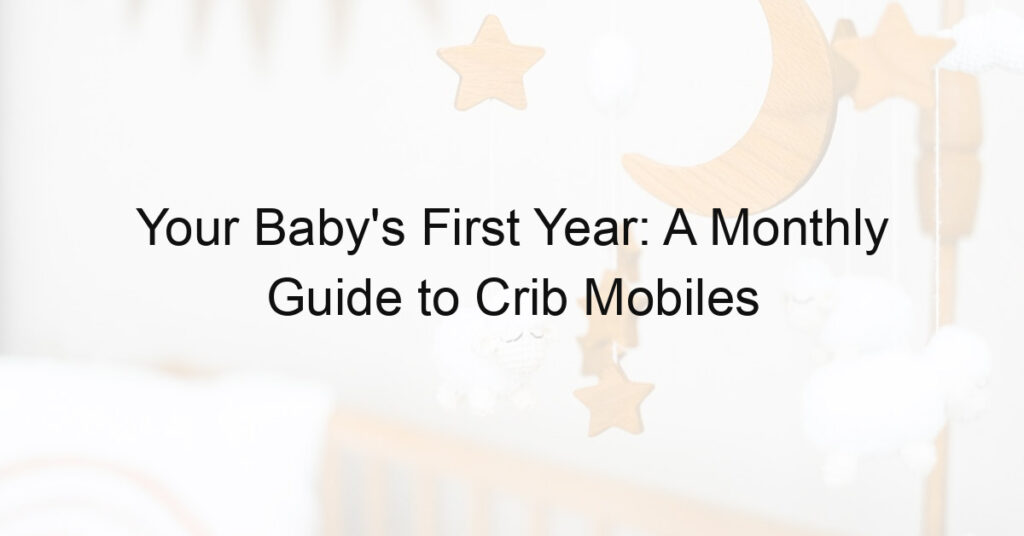Do you ever feel like your baby just isn’t getting enough rest? Most babies come with a list of common issues that cause them not to get good sleep, from reflux to teething pain. But did you know that something as small as their tongue can also be causing difficulties in your little one’s sleeping habits? That’s right: tongue ties can have a serious effect on the quality and amount of sleep your baby gets — and all parents need to understand what it is and how to help fix it.
In this blog post, we’ll discuss the basics of tongue ties and their connection to sleep problems in babies, so read ahead!
Can tongue-tie make a baby unsettled?
Having a baby with tongue-tie can cause lots of distress for both parent and infant alike. It’s very common, affecting up to 10% of newborns in the U.K., and is often the culprit behind why a baby is particularly unsettled and difficult to settle. Babies who have difficulty latching on due to the restriction caused by tongue-tie might not be able to get an adequate milk supply and so become easily frustrated, rendering them unhappy and fussy.
Fortunately, there are treatments available that can rectify this issue, including laser frenulotomy or snipping the tight tissue from beneath the baby’s tongue. While it can be daunting to seek help for a problem like this, doing so will ensure your little one is a much happier baby in no time.
Can a tongue tie cause sleep apnea in babies?
Research into the causes of sleep apnea in babies has yielded some interesting results, with recent studies showing a possible link between tongue tie and sleep apnea. This is an intriguing investigation, as one might think that the only thing their tongue can affect is their ability to talk clearly. However, if there is a restricted range of motion for the baby’s tongue, a buildup of saliva and other dysphonic secretions can cause blockages in the airway—which adversely affects the baby’s breathing during sleep.
A study from 2017 found a considerable correlation between babies with instances of obstructive sleep apnea and being diagnosed with a tongue tie. Although further research is needed to confirm these findings, it goes to show that something we take for granted—the flexibility of our tongues—can have some unexpected consequences on our bodies!
Do babies with tongue tie sleep with their mouths open?
While it may look like a baby with a tongue tie is sleeping while keeping their tongues out, they are opening their mouths both to become more comfortable and to facilitate better breathing. Because tongue-tie limits the range of motion and elasticity in the muscles of the mouth and tongue, some difficulty with swallowing and freeing up space for air intake can occur, so children often keep their mouths open slightly to compensate.
While it’s natural to worry over this symptom, there is no real cause for concern because it is part of the process children with tongue-tied use to adjust as they grow. In most cases, babies will grow out of this habit with time as their mobility improves.
Why is my baby sleeping so much after tongue-tie release?
If you’ve recently had your baby’s tongue tie surgically released and wonder why the little one is suddenly sleeping more, there could be a few reasons. After a tongue-tie release, it’s normal for babies to seem exhausted since they can finally use their tongues in ways they couldn’t before. This increased muscle exertion requires extra sleep as the body works hard to heal and strengthen the new oral muscles.
Additionally, pain relief from being able to breastfeed or bottle feed more efficiently might let your baby get better restful bedtime sleep. It can take weeks or even months for a baby to adjust to their new normal following tongue-tie release–but if you notice any of these signs along with excessive sleeping, it might be time for a consult with your pediatrician.
Are tongue-tied babies fussy?
All babies fuss and cry. It’s just their way of communicating with us. But, some newborns are particularly fussy because they’re tongue-tied. To put it simply, if your baby has a tongue tie, the thin tissue connecting the bottom of their tongue to the floor of their mouth is too restrictive.
This makes it difficult for them to properly latch and feed, which can cause frustration and increased fussiness. Thankfully there are treatments available to help automatically release the tongue tie so that your little one can feed comfortably again.
Summing it Up
Sleep is important for babies’ health, growth, and development and many parents worry about their baby’s sleeping habits. There are a variety of potential causes of sleep issues in infants and many helpful resources are available to parents along the way. Tongue-tie and lip-tie can also be a potential issue to consider if your baby is having difficulty sleeping, struggling with breastfeeding, or irritable during feedings and crying bouts.
Taking small steps such as spotting sleep cues and making sure the sleep environment is comfortable can go a long way in helping parents become more confident in dealing with their baby’s sleep issues. The information provided in this post should help alleviate any worries or anxieties that may arise when it comes to deciphering why your little one is having trouble sleeping or breastfeeding.
With these tips (and support from your healthcare team!) you will be able to better identify possible culprits for any ongoing sleep issues for your infant.














